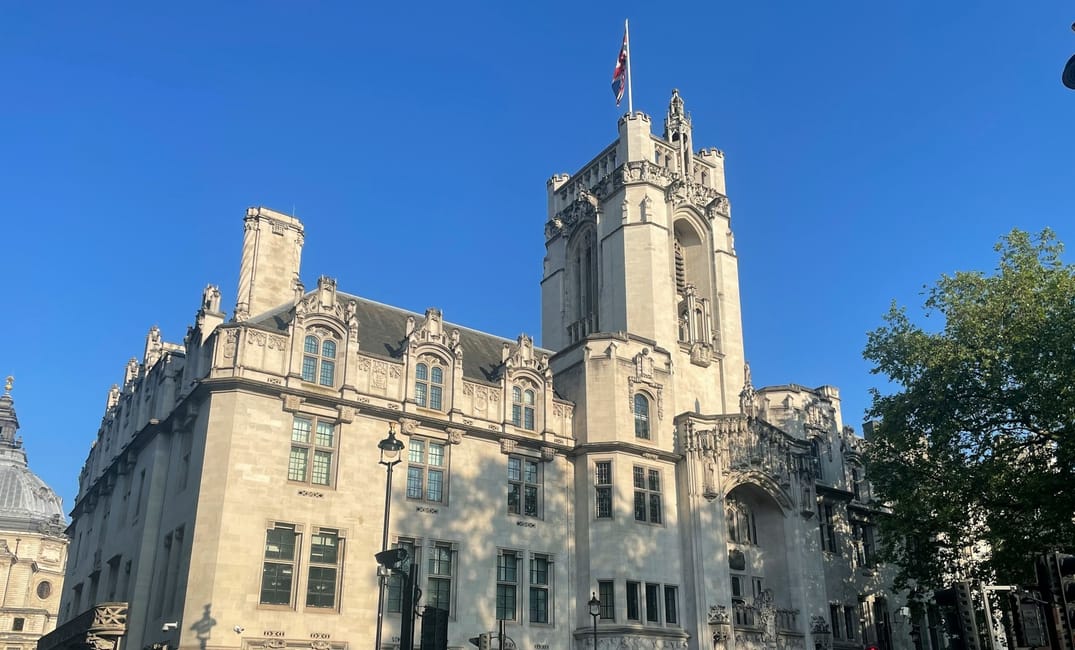Oliver Pridmore
Naked Politics Blogger
An emergency flight back from New York, the United Kingdom’s highest court ruling that advice given to the Queen was illegal and consequential calls to resign – it’s been a bad day in the office for Boris Johnson.
On Tuesday, the Supreme Court ruled that his decision to advise the Queen to suspend Parliament for five weeks in the run-up to the Brexit deadline was unlawful.
That ruling confirms with the opinion of the Court of Session in Edinburgh but contradicts what was said by England’s High Court – that this issue was a political matter that judges shouldn’t get involved in.
It’s all looking a bit crazy, with high emotion on both sides of the political spectrum, but it’s important is to rewind and fully ingest what was said in the ruling, and what the Prime Minister had to say in response.
What happened in the judgement?
It was Lady Hale, the Supreme Court’s President, who delivered the damning judgement this morning as the tension in the courtroom rose in accordance with the volume of the protestors outside.
But aside from the obvious ruling that the suspension of Parliament was unlawful, what else was telling in her statement?
Firstly, Lady Hale sought to reaffirm that this judgement was nothing to do with Brexit from the Supreme Court’s perspective.

She said: “It is important, once again, to emphasise that these cases are not about when and on what terms the United Kingdom is to leave the European Union. They are only about whether the advice given by the Prime Minister to Her Majesty the Queen on 27th or 28th August, that Parliament should be prorogued from a date between 9th and 12th September until 14th October, was lawful and the legal consequences if it was not.”
Secondly, addressing directly the view of the High Court that this was not a matter for judges, Lady Hale said: “There is no doubt that the courts have jurisdiction to decide upon the existence and limits of a prerogative power. All the parties to this case accept that.”
Thirdly, Lady Hale addressed the key line from the Government that this suspension was normal in the sense that a Queen’s Speech was overdue and Parliament is usually suspended around this time of year anyway for the party conferences.
Lady Hale underlined the distinction between a recess and a prorogation by saying: “This was not a normal prorogation in the run-up to a Queen’s Speech. It prevented Parliament from carrying out its constitutional role for five out of the possible eight weeks between the end of the summer recess and exit day on 31st October. Proroguing Parliament is quite different from Parliament going into recess. While Parliament is prorogued, neither House can meet, debate or pass legislation. Neither House can debate Government policy. Nor may members ask written or oral questions of Ministers or meet and take evidence in committees. In general, Bills which have not yet completed all their stages are lost and will have to start again from scratch after the Queen’s Speech. During a recess, on the other hand, the House does not sit but Parliamentary business can otherwise continue as usual.”
So, from the Supreme Court’s perspective, the key takeaways are that they emphasised their beliefs that it was their right to be involved in this matter, that this was in no way a normal prorogation and that their decision was nothing to do with Brexit.
What about the Prime Minister’s response?

Firstly, given rumours in some circles that Boris Johnson would simply ignore this ruling if it went against him, one of the most important takeaways from his response was that this was not the case.
He said: “This is a verdict we will respect and we respect the judicial process.”
But more importantly, Boris hinted that a further suspension of Parliament could be on the way, saying that the judges had not ruled that out.
He said: “I do think there’s a good case for getting on with a Queen’s Speech anyway.”
Finally, although not alluding to any pro-Remain bias amongst the Supreme Court justice, Boris did emphasise his belief that it was the pro-Remain inclination of Gina Miller, who brought the case to the court, that was leading her.
He said: “The claimants in this case are determined to try to frustrate that and to stop [leaving the EU].”
So, the main takeaways from Boris Johnson’s response are that he’s still convinced that those who brought this case to the court were motivated by anti-Brexit motives, that he will respect the verdict this time, but could simply suspend it again at a later date.
So, it’s all looking creates a great deal of uncertainty in terms of how the Brexit process moves on from here, if at all.
One of the only things we are clear on is that Parliament is coming back, tomorrow morning, at 11.30am.
Just what will happen next? That’s a question that even the Supreme Court justices would struggle to answer.

